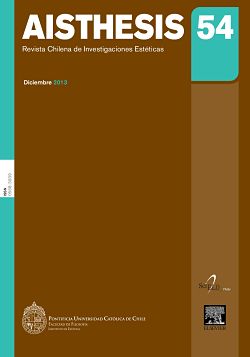Rewriting La infancia in Luis Oyarzún’s Los Días Ocultos
Main Article Content
Abstract
Philosopher Luis Oyarzún wrote two autobiographical novels that present the perception of a child from the province: La infancia (1940) (Childhood) and Los días ocultos (1955) (Hidden Days). Critics such as Roberto Hozven, Leonidas Morales and Olga Grau state that the second novel is a new version of the first one. This article compares both texts, seeking to elucidate and understand the differences between them and examining, in both cases, the extents to which they reveal a more mature writing, as well as the concerns of an author that until today holds a marginal place in the construction of a Chilean philosophical and literary canon.
Downloads
Article Details

This work is licensed under a Creative Commons Attribution-NonCommercial-ShareAlike 4.0 International License.
All contents of this electronic edition are distributed under the Creative Commons license of "Attribución-shareAlike 4.0 Internacional" (CC-BY-SA). Any total or partial reproduction of the material must mention its origin.
The rights of academic works published in this publication belong to their authors., who grant to AISTHESIS: Revista Chilena de Investigaciones Estéticas the license for its use. The management of the permits and the authorization of the publication of the images (or of any material) that contains copyright and its consequent rights of reproduction in this publication is the sole responsibility of the authors of the articles
